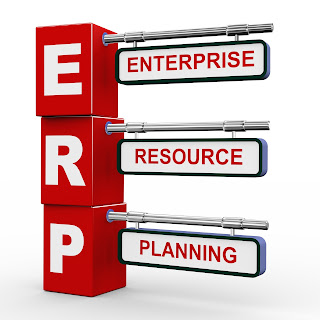What are the benefits for the company?
Quality and efficiencyERP systems can create a framework to integrate and improve internal business processes of companies that produce a significant improvement in the quality and efficiency of customer service, production and distribution.
Decrease Costs
ERP systems can be a significant decrease in the cost of transaction processing and hardware, software, and information technology support staff, when compared to non-integrated systems are replaced by the ERP system.
Decision Support
ERP systems can facilitate the tasks of daily management in making decisions and perform management functions that include among others in the fields of planning, organizing, monitoring and control. ERP systems can provide information about business performance across a very important function quickly to the level of managerial and decision makers in order to significantly improve the ability to make decisions in a timely manner across a company's business
Company Agility
In implementing the ERP system can eliminate cultural differences between departments, so that the data can be integrated. And eliminate the walls departments and functions of various business processes, information systems and information resources, resulting in organizational structure, responsibilities and managerial job roles more fkeksibel, and hence generate organizational structure and workforce more agile and adaptive to more easily take advantage of new business opportunities.
Integrated Systems
ERP systems offer integrated system within the company, so that the decision-making process and can be done more effectively and efficiently
ERP systems can facilitate the extraction of information
to produce reports supporting analysis and long-term planning that can be used as decision making tools as decision support systems.
ERP systems produce information
of the input data that are relevant to planning activities between departments so that resources are managed and allocated efficiently and effectively, for example planning the purchase of goods, production planning and cash flow planning, sales planning and cost planning
ERP system creates the organizational structure
sleek and appropriate division of labor with an integrated system for all functions of both the function of the sales, purchasing, production and finance so as to eliminate duplicate jobs and to use standardized data for the entire department.
ERP system ensures all activities
conducted in accordance with established procedures eg purchasing function must go through the calculation of the planning needs of goods after the purchase order is then further goods receipt acknowledgment of debt. The entire activity can be run efficiently and effectively
ERP system advantages:
- Has a good integration of data and consistency
- Reduce unnecessary costs, such as reducing paper costs
- Improving ways of working more efficiently
- Reducing work double
- Improve control and increase the information accurately
- Reduce processing time
- Improving coordination (cross functional)
- Improve customer satisfaction
- Give way to better management analysis in support of decision
- Improving business performance
- Increase the maximum benefit to the Company
Limitations of ERP Systems:
- The occurrence of the change, the resistance will occur automatically in the running this ERP system
- Training. The process of training to use the new system to be spent
- ERP systems typically have a relatively expensive price
- ERP systems are not userfriendly and does not address issues related to human error (the error)



Conversion Conversion Emoticon Emoticon